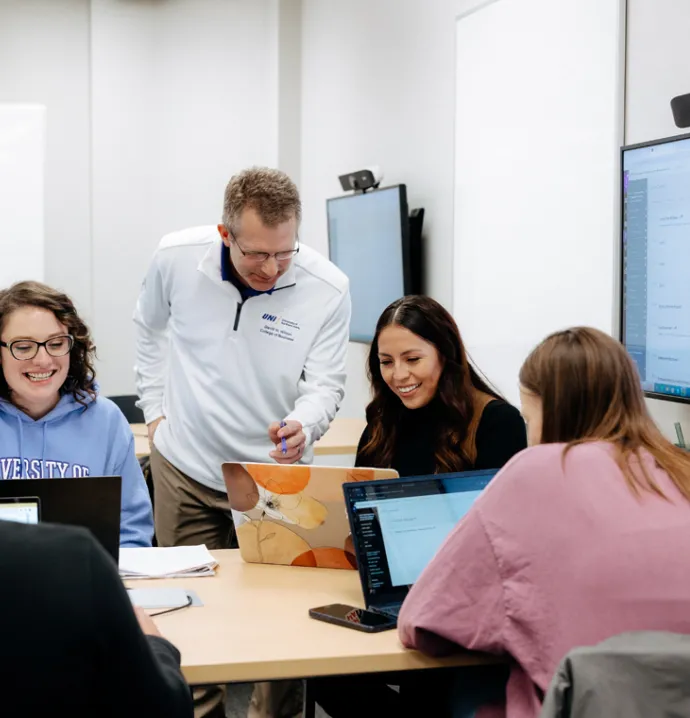UNI ScholarWorks surpasses two million downloads
UNI ScholarWorks surpasses two million downloads
A geology educator found information on St. Peter’s sandstone. An Australian researcher discovered an early paper on the physiology of oats. Both a Pennsylvania graduate student and a Colombian graduate student in France tracked down important research on education.
Whatever the reason, researchers, educators, podcasters and students around the world have tapped into the University of Northern Iowa’s ScholarWorks archive, a vast, public repository of the university’s research and publication output that recently surpassed two million downloads.
“UNI ScholarWorks showcases the knowledge and intellectual productivity of UNI faculty, staff, and students, and the influence of these works is apparent both here at UNI and across the globe,” said Ellen Neuhaus, UNI digital scholarship librarian and associate professor. “The accessibility of this information is helping to fulfill both personal and research needs around the world, and the feedback we receive shows how much it is appreciated.”
Started in 2015, ScholarWorks now holds over 26,000 works, representing student, faculty and staff publications and other scholarly output of the UNI community. The repository, a service of Rod Library, sees an average of 3,000 downloads per day and 90,000 downloads per month and is used by over 37,600 institutions worldwide.
A dissertation by former Department of Technology student Mark Allen Wilcox studying the attitudes and behaviors of college students related to recycling is the most downloaded dissertation located in the repository, with 21,000 global downloads since its posting in 2015.
Use of the archive is growing fast. It took six years to reach one million downloads, but when COVID-19 hit in March of 2020, demand skyrocketed due to the accessibility of the platform. In just over a year and a half, access to the site has nearly doubled, reaching two million.
“We want to highlight the knowledge, creativity, and innovative spirit of UNI,” Neuhaus said. “The repository ties directly to the strategic goals of UNI by illustrating student success. It clearly demonstrates the value and global reach of all parts of the university.”
Students with work archived in the repository see a range of benefits. Rather than have their dissertation grow dusty on a library shelf, their research is instantly accessible to a global audience. They can also track interest in their work through monthly readership reports and include the URL on graduate school applications and resumes.
“At UNI, students are encouraged to place their theses and dissertations on the site and allow the world to see and utilize their research,” said Theresa Westbrock, dean of Library Services. “The hard work and research that went into their writings can now be celebrated and showcased on a global scale, rather than gathering dust in a personal file, never to be seen by anyone else. Seeing one’s work published in this way is something to be proud of, and it provides a great opportunity to share one’s accomplishments with potential employers.”
And ScholarWorks is more than an archive of research papers. It houses journals and images galleries, such as biology professor Carl Thurman’s collection of about 420 images of Frank Lloyd Wright structures and communications and media professor Catherine Palczewski’s archive of suffrage postcards that illustrate the struggle for women's suffrage in both the United States and Great Britain. It also acts as a historical repository for UNI yearbooks and commencement programs.




